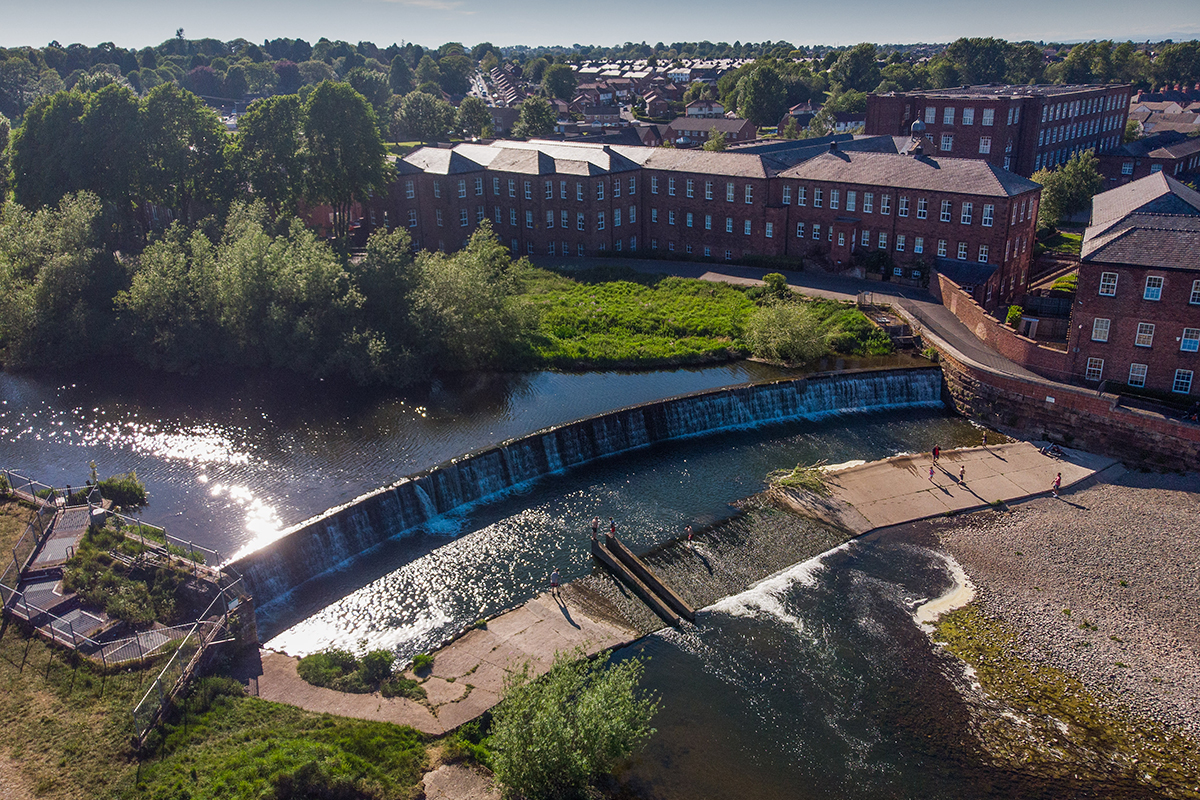Rivers under threat
Rivers are our lifeblood. We all need clean and healthy water to survive and thrive. However, our rivers are under threat.
TV programmes such as Our Troubled Rivers and Wild Isles have shone a spotlight on the desperate state of our rivers in England.
Is it really as bad as they make out?
Yes it is. None of the rivers in England are classed as ‘good overall’ (Water Framework classification) and there has been an 83% decline in freshwater species since 1970 (source: The Rivers Trust)
This matters, as only 1% of the earth’s surface is made up of freshwater ecosystems, yet they provide habitat for 100,000+ species. Our rivers and lakes are a scarce, precious resource that we can’t afford to lose
In the Eden catchment, only 41% of our waterbodies are classed as ‘good’ (according to the Water Framework Directive). Let’s stop and think about that shocking statistic for a moment - only 41% … and that’s the best of a bad bunch!
Pollution
Why is this happening? Well, in the 59% of waterbodies that haven’t even reached ‘good’ status, pollution is a key factor. Pollution from agriculture and land management practices is an issue in over 70% of these waterbodies, with the wastewater industry in 2nd place affecting another 13%.
What is the problem? Nutrients that enrich the river ( Nitrogen and phosphorus ) from agriculture ( fertiliser and cow poo) and from untreated sewage, are a real problem as they make algae grow, blocking the light (bad for any aquatic plants or river creatures!) When algae dies, it uses up precious oxygen as it decomposes and these decomposing bits then smother river beds. Sediments from soil also smother the river bed and discolour the water.
Whilst we're talking about soil, erosion is a big issue. Due to bare soil in particular. Down by the river, bare riverbanks, without strong tree and plant roots to hold it together, can be easily eroded, allowing soil to get into the water. This is caused by cows trampling over the riverbanks to enter the river; invasive non-native plants such as Himalayan balsam that die back in winter or a lack of trees or hedges to create a 'buffer' and put down much-needed roots and capture sediment before it spills into the watercourse.
In fields, compacted soil means that rainwater can rush over it down to the river, taking soil and other nutrients with it. The drying out of our precious upland peatlands has meant that peat has been eroded too, releasing carbon into our atmosphere.
Add to this the litter and microplastics found in the river and strewn along the riverbank, plus the unflushables poured down the sink or flushed down the loo.
Our rivers have become a dumping ground.

Barriers to migration and habitat loss
Over hundreds of years, humans have modified our rivers and landscape to increase agricultural land, power mills and build new communities along the river. The Eden catchment is peppered with barriers such as weirs that make it difficult or impossible for aquatic species to move freely up- and down-stream between the habitats needed for a particular stage in their lifecycle.
This is life or death. If Atlantic salmon, exhausted after their epic migration to Greenland and back, do not have the energy to leap over a series of weirs to reach the beck where they were born, there won’t be a new generation of fish.
Rivers that were artificially straightened to move water away from the land and out to sea as quickly as possible don’t have the variety of river habitat that those lower down in the food chain desperately need:
No deep, still pools for fish to hide in.
No shallow, oxygen-rich riffles for insects to bask in.
No patchwork of gravels for insects and fish fry to bury into or hide amongst.
Instead, the riverbed is bare, devoid of life, simply moving water quickly downstream towards towns and villages already fearful of what the next deluge will bring.
